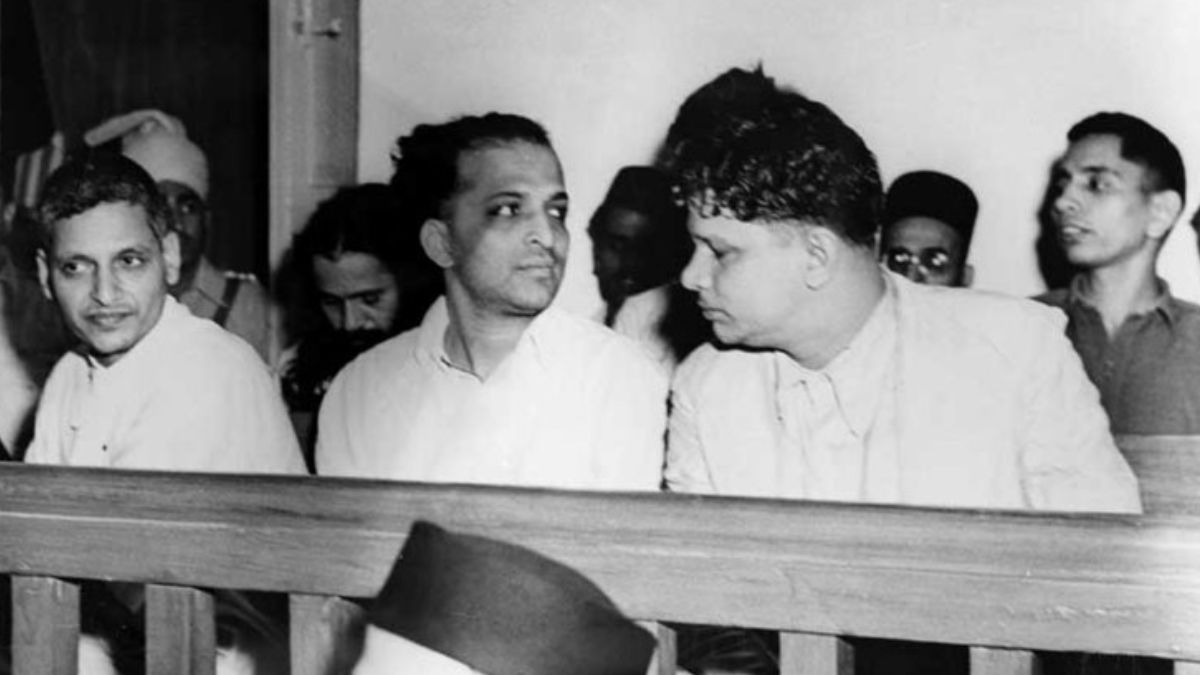Nathuram Vinayak Godse shot Mahatma Gandhi on January 30, 1948, after the revered leader emerged from a prayer meet in Delhi’s Birla House. What followed was chaos, shock and anger across the country. Godse was arrested on the site and later sentenced to death. He was executed on November 15, 1949.
If you are a history geek who loves to learn about important events from the past, Firstpost Explainers’ ongoing series, History Today will be your one-stop destination to explore key events.
On this day in 1988, Yasser Arafat, chairman of the Palestine Liberation Organization (PLO), proclaimed the establishment of the independent State of Palestine during a historic session of the Palestinian National Council (PNC) in Algiers, Algeria.
Here is all that took place on this day across the world.
Nathuram Godse was executed
Nathuram Vinayak Godse was executed by hanging at Ambala Jail in Punjab on November 15, 1949, for assassinating Mahatma Gandhi. He was not the only one - his co-conspirator Narayan Apte was also executed. The execution marked the end of one of the most sensational trials in India’s history and closed a dark chapter that followed the nation’s independence.
Godse, a former member of the Hindu nationalist organisation Rashtriya Swayamsevak Sangh (RSS) and later part of the Hindu Mahasabha, assassinated Gandhi on January 30, 1948, during a prayer meeting at Birla House in New Delhi. He fired three bullets into Gandhi’s chest at close range. Godse claimed he opposed Gandhi’s policies of nonviolence and his perceived favouritism toward Muslims after Partition.
The trial of Godse and his accomplices began in May 1948 and lasted nearly a year. Godse admitted to the killing but defended his actions as politically motivated, arguing that Gandhi’s influence weakened India’s unity. Despite his justification, the court found him guilty of murder and conspiracy.
Quick Reads
View AllPublic sentiment following the assassination was one of shock and mourning. Gandhi, revered as the Father of the Nation, had been a symbol of peace and moral strength. The government resisted appeals for clemency for Godse and Apte, citing the gravity of their crime.
On the morning of November 15, 1949, both men faced the gallows with reported calmness, expressing no remorse. Their execution drew mixed reactions — condemnation from most quarters and quiet support from fringe nationalist circles.
Palestinian state proclaimed by Yasser Arafat
The chairman of Palestine Liberation Organization (PLO), Yasser Arafat, proclaimed the State of Palestine during a historic session of the Palestinian National Council (PNC) in Algiers, Algeria on this day in 1988.
In his address, Arafat read the Declaration of Independence, which drew inspiration from the Universal Declaration of Human Rights and referenced United Nations resolutions. The declaration affirmed the Palestinian people’s right to sovereignty over their homeland and designated Jerusalem as the capital of the new state. It also emphasised the principles of peace, coexistence, and adherence to international law.
Although the proclamation did not establish immediate control over territory, since much of the West Bank and Gaza Strip remained under Israeli occupation, it was a significant political and symbolic move. Within weeks, over 90 countries recognised the State of Palestine, and it was later granted observer status at the United Nations.
For the first time, the PLO implicitly accepted the two-state solution by acknowledging UN Resolution 242, which called for Israel’s withdrawal from the occupied territories and mutual recognition. This move helped pave the way for future negotiations, including the Oslo Accords in the 1990s. While Israel and the United States rejected the proclamation, viewing it as unilateral and lacking practical authority, it resonated deeply among Palestinians and the broader Arab world.
This Day, That Year
In 2001, Microsoft released Xbox.
American inventor King Camp Gillette was granted a US patent for the first razor with disposable blades in 1904.
With inputs from agencies
)